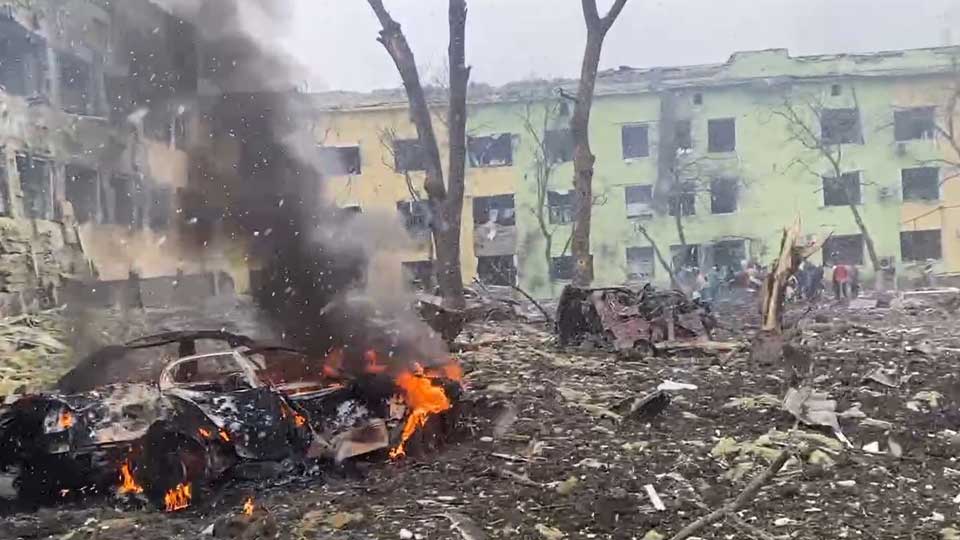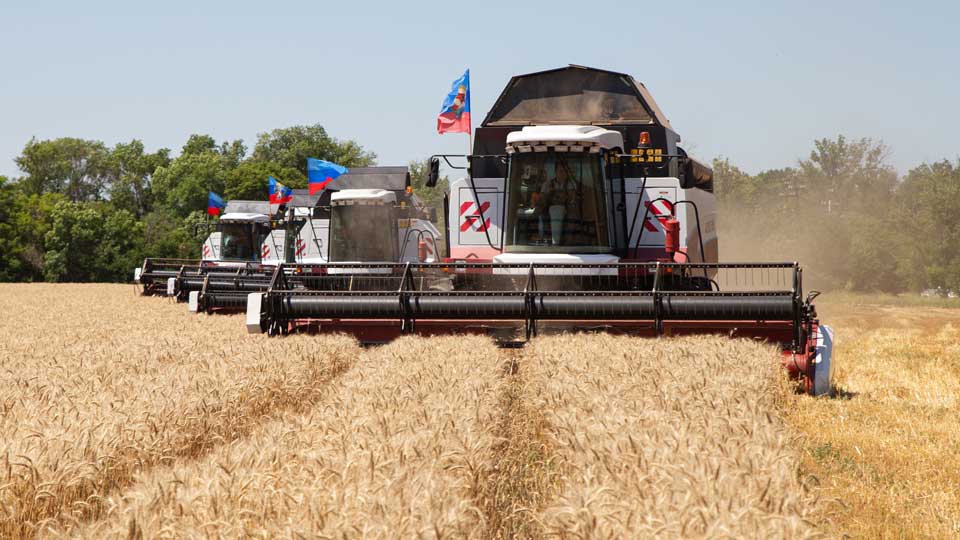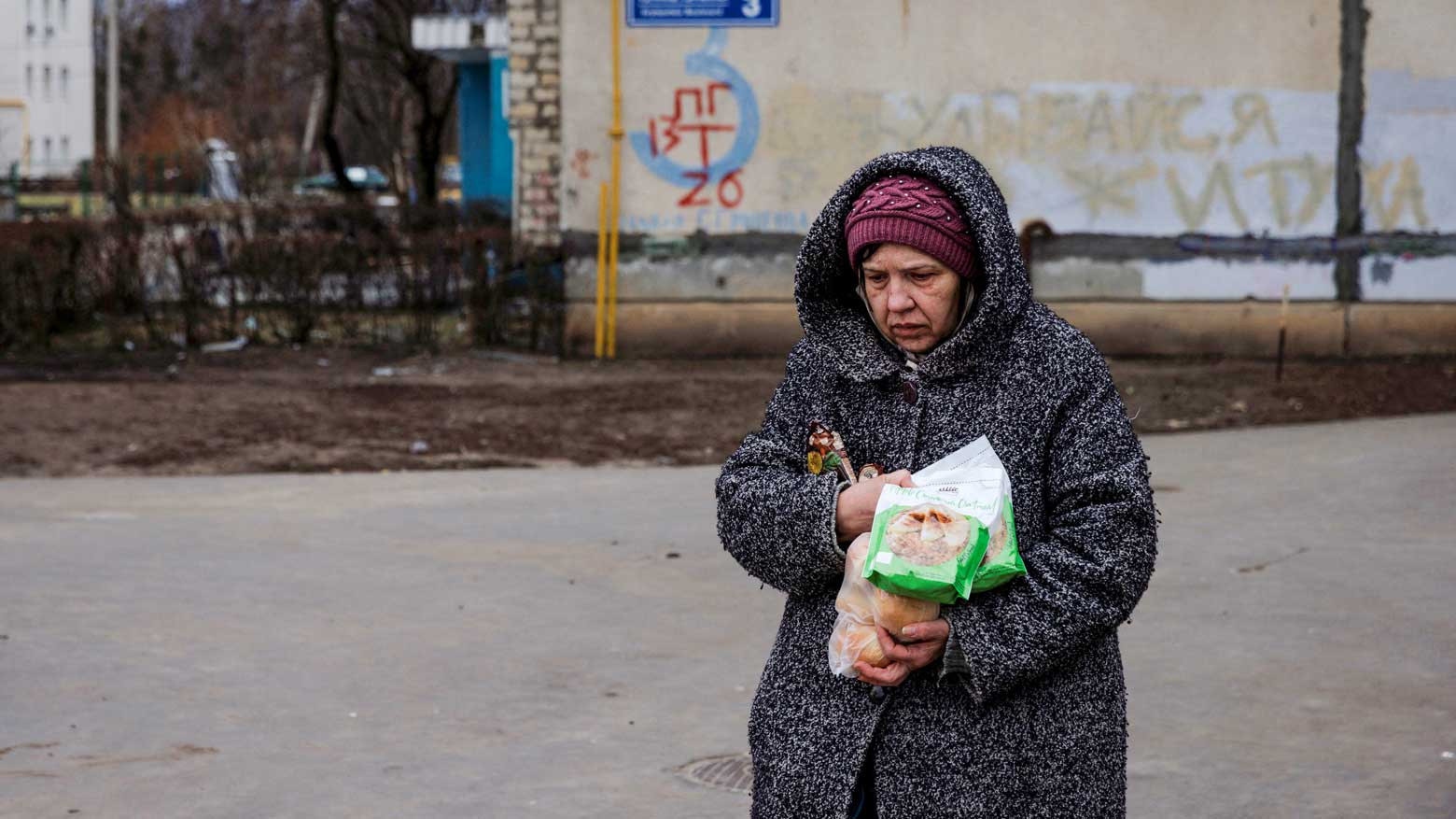Aid missions hampered by lack of access
The WFP has described it as a "catastrophe on top of a catastrophe" and said they never dreamed it was possible. The organization estimates that 45 percent of the Ukrainian population faces food shortages, with one in five people now having to reduce how much and how often they can eat.
"More and more people are struggling to find food, particularly in hard-to-reach areas which have witnessed intense fighting," says WFP Spokesperson Tomson Phiri.

The WFP has provided support, including ready-to-eat food rations, to more than one million people affected by the war. But Phiri says the logistics of delivering food across the war-torn country present a challenge.
"We are struggling to reach Mariupol and we are extremely concerned that people who have been trapped by the conflict there are now struggling to find food to eat," he says.

On March 12, the International Committee of the Red Cross posted a message on Twitter from its staff in Mariupol. It described a desperate situation, with no electricity, water or gas. The staff said they had enough food "for a few days" and described their situation as "comparatively good."
"It is very difficult for the United Nations to work safely, particularly in besieged cities," Phiri says. "We are discussing with a number of partners, including NGOs and civil society. We are even engaging churches to find ways to fill the gaps."
Global crisis looming
The WFP says the war has already disrupted harvests, triggering a wave of "collateral hunger" elsewhere in the world. Russia and Ukraine are responsible for about 30% of the global wheat trade. Even Ukraine alone, it used to grow food for 400 million people.
"What is clear is that one month of fighting has resulted in massive destruction, devastation and damage to Ukraine," says Phiri. "The next harvest season hangs in the balance. Ukrainian farmers were supposed to be planting by now."

Call for international support
The WFP warns that humanitarian organizations could end up being priced out of buying aid as disruptions to production and exports push food prices up globally.
Phiri says international support is crucial for these operations to continue in the months ahead.
"We appeal to them [the international community] to dig deeper," he says. "We've been able to start, we've been able to launch activities, but we will need resources in order to sustain these activities, as well as scale up, in the coming weeks and months to reach more people in need."

